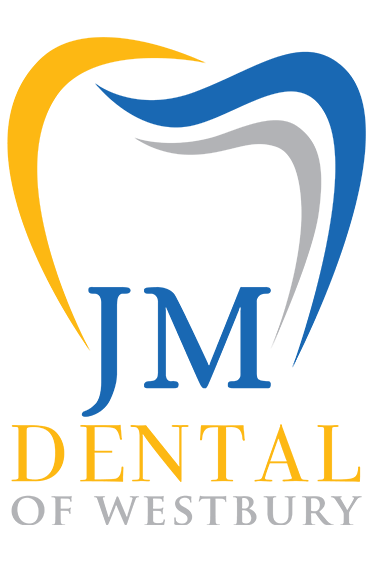TMJ Treatment in Westbury

JM Dental of Westbury provides treatment for TMJ disorders in Westbury, New York. Call 516-334-3444 or contact us today to learn more and schedule an appointment.
What Is TMJ Disorder?
TMJ disorder is a condition affecting the temporomandibular joint where the lower jaw connects to the skull. There are two of these joints located on both sides of the face in front of the ear. One or both of these joints can become misaligned or inflamed due to excess pressure, overuse, or injury. Teeth grinding and clenching are common causes of TMJ disorder.
Signs You Need TMJ Treatment
The following signs and symptoms may indicate TMJ disorder:
- Headache, especially in the temple region.
- Pain in the jaw.
- Sore facial muscles.
- Ear pain.
- Limited movement of the jaw.
- Popping or clicking sound in the jaw.
- Pain when chewing.
- Locked jaw.
Treatment for TMJ Disorder
TMJ disorder can be treated in a variety of ways:
- Home remedies. If you have any of the above symptoms there are some basic treatments you can try at home. Apply ice to the jaw and face, take anti-inflammatory pain medication, and rest your jaw as much as possible by eating soft foods and avoiding excess talking.
- Professional treatment. If your symptoms don’t subside in a few days or up to a week with home remedies, you may need professional treatment. We can prescribe stronger anti-inflammatory medication or provide bite splints or Botox injections.
- Surgery. When all other treatment options have been ineffective, surgery may be required. The joint may need to be reconstructed from the inside.
Why Choose JM Dental?
For jaw pain and other symptoms, your dentist is the right professional to see. We provide a variety of treatments for TMJ disorder that can relieve pain and restore range of motion in your jaw. Our goal is to provide the least invasive treatment that will be effective at relieving your symptoms now and prevent them in the future. We only resort to surgery if no other treatments have provided relief.
We also believe in the value of prevention. If you grind or clench your teeth at night while you sleep, you are unknowingly putting excess pressure on your TMJ. We can create a custom night guard for you to wear when you sleep to prevent damage to your teeth and absorb the impact that grinding and clenching exerts on your TMJ.
Frequently Asked Questions About TMJ Disorders
What causes TMJ disorder?
TMJ disorder is most commonly caused by excessive force to the jaw, either by injury, teeth grinding, teeth clenching, excessive chewing, chewing hard foods, or biting non-food items. It can also be caused by other health conditions such as arthritis or rheumatoid arthritis.
Can TMJ disorder be cured?
Treatment for TMJ disorder may temporarily cure it, but the same triggers could cause it to return. If there is a problem inside the joint, such as misalignment or a slipped disk, surgery may provide a permanent cure.
Is TMJ disorder the same as lockjaw?
Lockjaw is a common name for tetanus, a bacterial infection that leads to extreme muscle tension which can cause your jaw to lock shut. TMJ disorder is a much less serious condition with different causes.
What causes the popping or clicking sound in my jaw?
A common symptom of TMJ disorder is a popping or clicking sound in the jaw when you open and close your mouth. This may be caused by the bones of your jaw and skull rubbing together if the disk has slipped out of place. It can also be caused by ligaments that connect the jaw to the skull slipping over cartilage and bone.
Why does TMJ disorder cause pain inside my ears?
A common symptom of TMJ disorder is ear pain, which can cause patients to think they have an ear infection. This is because the TMJ is so close to the ear canal that the pain resonates in that entire area of the head, which can include the ear.
Contact Us
To learn more, call 516-334-3444 or contact us today to schedule an appointment.
